
John Fraser Farquhar – This is a photo of an oil painting, perhaps a self-portrait.

John Fraser Farquhar – The location of these two paintings is unknown.
Birth
Born September 20, 1821, in Aberdeen, Scotland.
Arrival
Emigrated to U.S. in 1832 from Scotland at the age of 11, accompanied by parents Joseph Farquhar and Margaret Christian Fraser. The family settled in Easton, Lehigh County, Pennsylvania.
Education
Lafayette College in 1841. Princeton Theological Seminary
-
1839 US College Student Lists, PA, LaFayette College, for John Farquhar
-
1842 US School Catalogs, PA, LaFayette College, for John Farquhar
-
1843 US School Catalogs, PA, LaFayette College, for John Farquhar
-
1844 US School Catalogs, NJ, Princeton Theological Seminary for John Farquhar
-
1845 US School Catalogs, NJ, Princeton Theological Seminary for John Farquhar
-
1845 US School Catalogs, PA, LaFayette College, for John Farquhar
-
1858 US School Catalogs, LaFayette College, for Reverend John Farquhar
Occupation
Pastor, Lower Chanceford Presbyterian Church
With thanks to Steve Adams for sharing this file with me:
Marriage
To Sarah Wilson (1823-1906) June 6, 1848 (Source: Record of the First Presbyterian Church of Easton, PA 1811-1887, page 74, at the Easton Public Library.)
Children
- Thomas McKeen Farquhar, born 10 Jun 1849, Chanceford, York, PA, died 19 Oct 1913, in Bethlehem, PA. Married Eliza Bogert in 1875.
- Harriet M. Farquhar, born 19 May 1851, died 19 Jan 1914, buried Easton Cemetery, Easton, Northampton County, PA. Married Thad C. Norton
- Joseph A. Farquhar, birth and death dates unknown (he may have died quite young)
- Margaret Christian Farquhar, born 30 Aug 1855 in Chanceford, York County, PA, died 27 May 1930, in Atlantic City, NJ. She taught at a public school in Easton. She might not have ever married.
- John Wilson Farquhar, born 1861, died 26 May 1943, Easton, Northampton County, PA.
Photo Gallery, Farquhar Children
-
1018-Harriet Farquhar
-
1018-Margaret-Farquhar
-
Thomas McKeen Farquhar
-
Sarah Wilson with John & Caroline
Biography
“Rev. John Farquhar, A.M. — Born in Aberdeen, Scotland, September 20, 1821; his father came to America in 1833, and located in Easton, that he might here educate his son, and by his hands was hewn the first stone laid in the foundation of what is now known as South College; the son studied law one year, and then entered Princeton Theological Seminary, and there graduated in ’46; ordained and installed pastor of the Presbyterian church, Lower Chanceford, York county, Pa., October ’46, where he preached until his death, September 18, 1866; he was Moderator of the Synod of Philadelphia; two of his sons entered Lafayette. from Record of the Men of Lafayette: Brief Biographical Sketches of the Alumni of Lafayette College by Selden J. Coffin, Easton, PA: Skinner & Finch, 1879.
Civil War Letter
In 1863, the Civil War came close to home for the Farquhars. Previous to this date, the soil of Pennsylvania had not been a battleground, but that changed when in the spring of that year General Robert E. Lee, after defeating the Union forces at Fredericksburg and Chancellorsville, began his northward push from Virginia in an effort to capture one of the key cities of Washington, Baltimore, or Philadelphia. To do this, he had to destroy the bridge over the Susquehanna River at Harrisburg, and disable the Pennsylvania Railroad in order to sever communication with the west. He was forced to abandon this plan, however, when he learned that the Union forces had closed in. Both sides prepared for battle.
Gettysburg was the site of this meeting between Union and Confederate forces. A small college town of 2,400 residents, its citizens took to their homes at the outbreak of fighting on July 1 and stayed inside until the battle ended two days later. The fighting took place in the farmlands around the town and only one civilian was killed, Jennie Wade, by a bullet that passed through a door of her house. Of the 97,000 Union and 75,000 Confederate forces, 6,000 had been killed in action, and 21,000 were wounded.
Churches, schools, and homes were opened and converted to makeshift hospitals to care for the wounded, hundreds of which died each day. Neighboring townspeople arrived to lend a hand. Among these were John Fraser Farquhar, his wife Sarah “Sallie” Wilson and their eldest son, Thomas McKeen Farquhar, who traveled 45 miles from their home in Lower Chanceford. Following is the letter John wrote just after returning home. It is dated July 13, 1863.
Dear Cousin:
When your kind letter arrived I had just returned from the battlefield of Gettysburg, whither I had gone to look after Sallie’s brother and his son, as well as to satisfy a rather strong curiosity and also to do a little good. Our relations belonged to the 153d P.V. and the Eleventh Army Corps, and although their regiment suffered terribly, bringing unhurt out of the field only about 200 out of 600 who entered, I found that they had escaped and had left with the army in pursuit of Lee. I would have answered your letter at once, but for a press of congregational business which had accumulated during my short absence.
In York County we have passed through a big scare. It is just one month to-day since we heard, at a funeral, of Lee’s advance into Maryland with 90,000 men. The same day Sallie and I visited Wrightsville, and the next York, and found the people in both places in great excitement. Just two weeks yesterday the rebels entered York some 8,000 strong, the place having been meanly and pusillanimously surrendered by its Copperhead Chief Burgess the night before, before even a demand, and when to do the vile thing the Committee of Safety had to go out of town some nine miles and rouse General Gordon out of his bed! To add to the disgrace and folly of the whole affair, after the surrender the “dear old flag” was flying to the breeze in the square, apparently for no other purpose than permitting the rebels to pull it down and trample it in the dust when they took possession of the town. The conduct of the copperheads was infamous all through. Of the rebel impost you have heard, and I need not speak. We may all have to pay for it for the town copperheads rule the county, their slaves must do as they bid. At Wrightsville more pluck was shown, our men retired after a smart brush and set fire to the long bridge you may remember crossing. We saw the light and knew at once the cause. In the meantime we spent a Sabbath in a way very unusual to old fashioned Presbyterians. Services in the churches were hurried through or suspended altogether; meetings held, and patrols or rather pickets appointed and a company raised which may be even now in conflict with the enemy in Maryland. In the evening rumors reached us that in one direction the enemy were within 2-1/2 miles, and in another 6 miles, and that at the latter place our pickets had been fired on. Though these reports proved untrue, and by some were suspected to be so at the time, they added to the alarm. Horses which had not been hid were now consigned to the bush (Tommy had concealed Billy in the morning, I don’t know where) and all we could do was to quietly wait secesh. To find the treasures of the York County Barons he would have had to spade as much as he ever did at his entrenchments.
Some four or five hundred of our own soldiers who had been driven from Hanover added to the confusion of the night by a stampede through the country that lay between them and the river, and their seizure of food, horses, wagons of whatever could help them on their way. But little sympathy is felt for many of the farmers whose horses the rebels stole. Most of them are peace democrats–copperheads as far as they know, which is not very far–members of the society which was to protect them from Jeff Davis when his army went through. Poor dupes: Their signs were disregarded, their professions of friendship turned against them by the rebels pretending that they would be glad to help them now that they had an opportunity, and their certificates of membership in “dat society” recommended as only useful for the most ignominious purposes.
I really doubt whether the rebels intended to cross the Susquehanna. If they did, they certainly took the wrong course. They might have found places in abundance, but the re-crossing perhaps presented itself as not so feasible. The cannonading at the battle of Gettysburg was heard distinctly here distant some 45 miles in a direct line, especially on Thursday evening. I brought with me a good many relics from the fields, and some imperishable impressions, among other things an abhorrence greatly intensified (before I thought that hardly possible) of the whole accursed conspiracy against the right of the world, that has sacrificed on its infernal altar so many thousands of our brethren.
I forgot to tell you that the poor darkies were in great trepidation. We did what we could to soothe them and assure them of safety. Let me tell you of a noble instance of womanhood. It took place in York – for even York has many noble people. While copperheads were exulting at the sight of fleeing negroes, one of our ladies observed an aged colored woman with two children painfully and fearfully struggling along. Her carriage, new satin-lined, luxuriously cushioned, perhaps costliest in the place for she is the rich wife of a rich merchant, had just been brought out to be sent to Columbia for safety. She ordered her coachman to take up the black refugees and give them a speedy and comfortable conveyance across the Susquehanna.
The rebs had negro servants many of whom escaped. Two from Louisiana passed a group of us in York on their way East. They were richer when they left us. This was before the fight.
When at Gettysburg, I visited the hospital of the 11th Army Corps about two miles from town. Its sights were awful, but deeply instructive. Interspersed among our brave boys, lying side by side in loving companionship, the most convincing proof I ever saw that a fellow feeling makes us kind, were many wounded rebels. Most of them seemed grateful for their treatment, and I judge many of them also for their wound that kept them here. Among the inconveniences of an extemporized hospital, open tents, suffering greatly from their wound, an almost universal cheerfulness prevailed. Their pride was that they had whipped Lee, and their most pressing desires were soft bread and butter and clean shirts. A few whom my companion and I supplied seemed in the seventh heaven of happiness – nor did they seem ungrateful for the kind providence that had preserved them from death in that fearful battle.
But I have wearied you with my stuff. Father and mother are well. Father is quite feeble, though he stirs about a good deal. He is much bent and his movements are slow. I do not think he could stand a journey to Massachusetts. We are all obliged to your for your kind offer, but the danger is now past. We think certainly, if Meade gains another victory, which God in his mercy grant. Should danger come, perhaps we might seek shelter, somewhere – yet we all feel like sticking to our posts. Many of our western friends and relatives are now on the field, and many of the young men of my congregation, and some old ones too, are in the six and three months’ service, while others are waiting willingly for the draft. Where is David? I hope well and safe returned. I trust Jean’s husband is also safe. Give our united love to the whole family. I hope “when the cruel war is over” we may interchange visits, and see each other in the flesh – and above all do I hope that through the faith in the Blessed Lord and Savior Jesus Christ, we may be able to see each other in the far better land which he has purchased for his people beyond the grave.
Yours affectionately,
John [Fraser] Farquhar
John Fraser Farquhar had not to worry about taking refuge “should danger come” as the defeat of the Confederates at Gettysburg turned the tide in the war and the fighting did not again approach Pennsylvania.
The letter itself has an interesting history. It was written to the parents of Jean Bartlett (mentioned in the last paragraph). In 1897 she gave the original to John Wilson Farquhar, youngest child of John Fraser Farquhar, the letter-writer. John Wilson sent a copy to his brother, Thomas McKean Farquhar. In 1933, the daughter of Thomas McKean, Sarah Wilson Farquhar (granddaughter of letter-writer) made a copy. In 1964 she gave a copy to Bruce Straub Farquhar, her nephew and great grandson of John Fraser Farquhar. Bruce Straub sent a copy to the Civil War Times Illustrated in Mechanicsburg, Pennsylvania. The last paragraph of his cover letter is written with respect for John Fraser:
“I don’t know whether my great grandfather was an Abolitionist by force of arms, but he seemed to have had definite and strong ideas on the right of the Union cause, Copperheads in general, and Confederate imposts. He gave credit to those who showed courage in resisting the invasion, to those with compassion and aid for the wounded, Union and Confederate, and to whose who helped the refugees, white and colored. His bent and taste for the English language make vivid descriptions of events that took place 101 years ago.” (Download a copy of Bruce’s 1964 Letter to Civil War Times Illustrated)
The current location of the letter is unknown. If you have it, please comment below!!!
Residence
1840
Death
Died September 18, 1866, in Lower Chanceford, York County, Pennsylvania. Buried in the cemetery at the Chanceford Presbyterian Church.
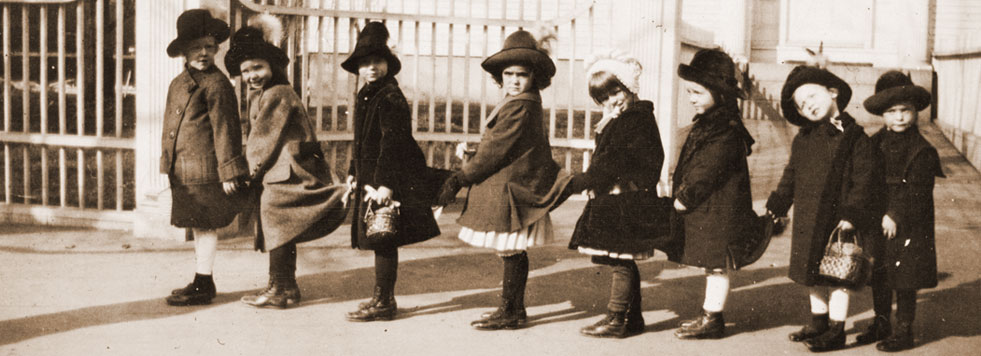

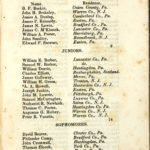
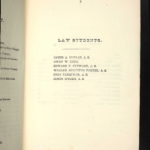
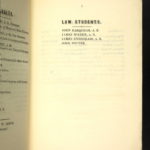
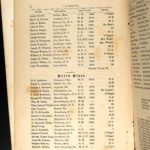
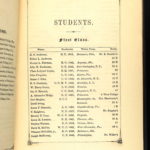
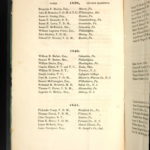
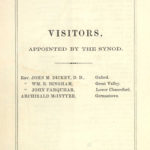
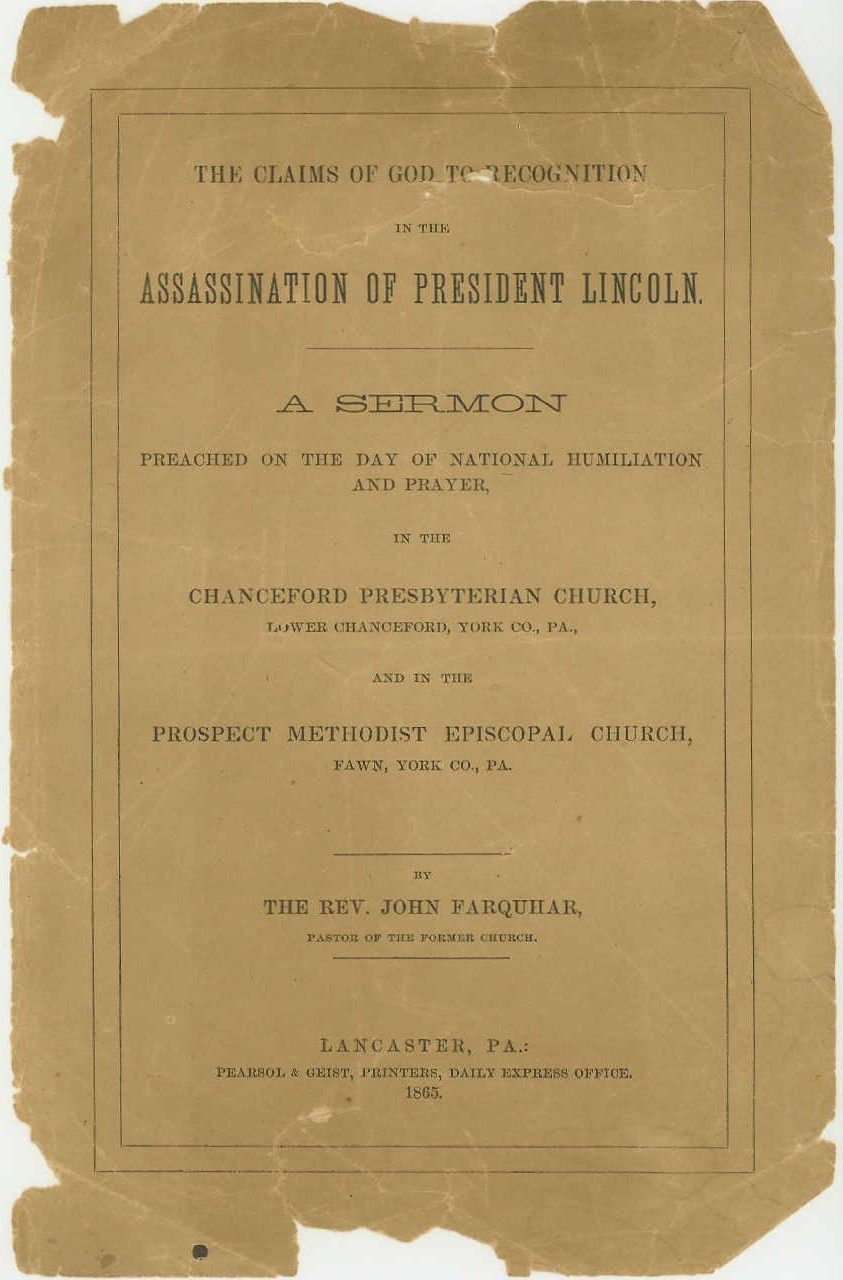
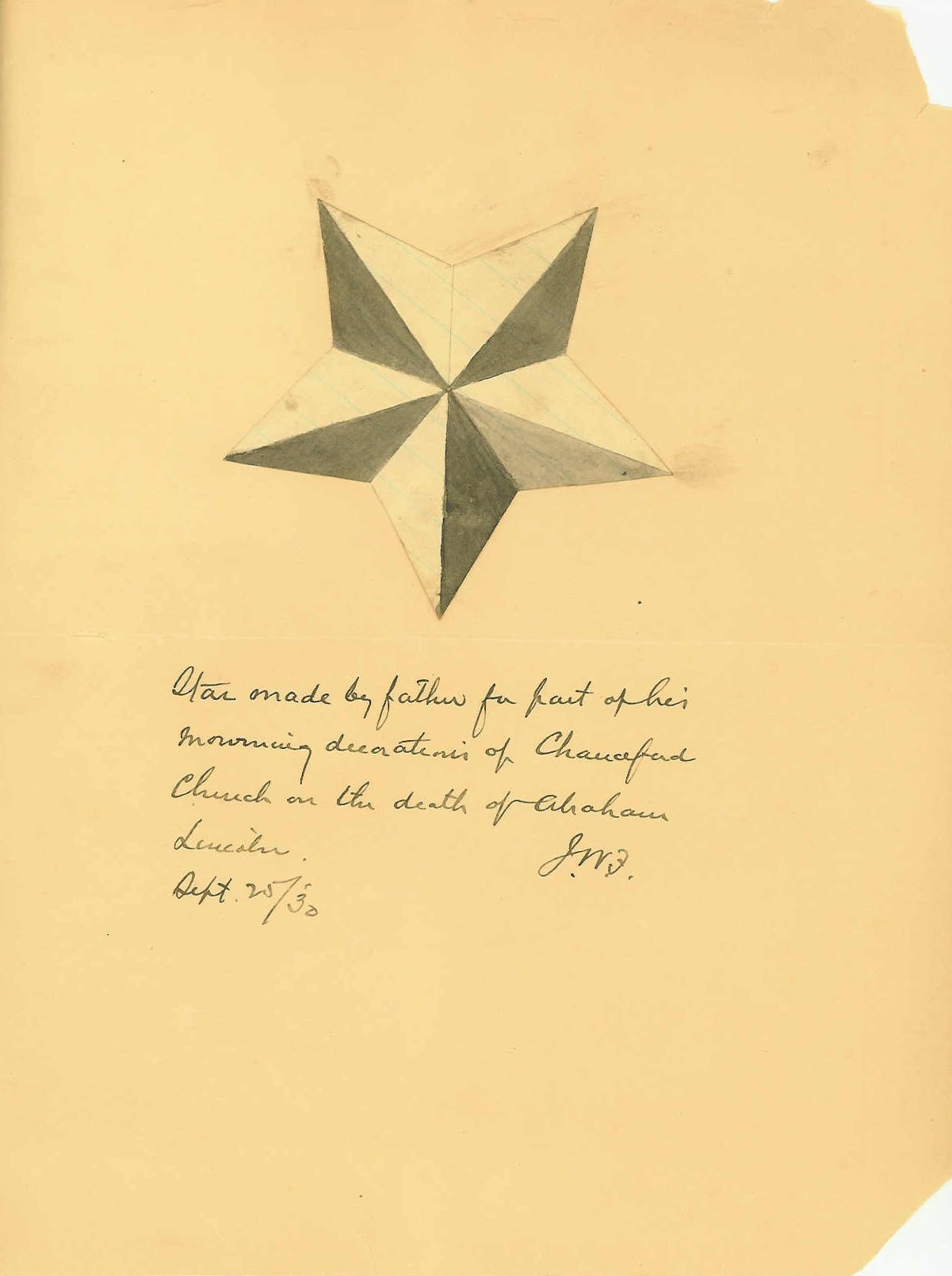
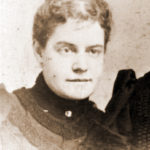
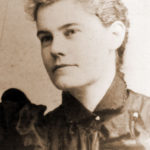
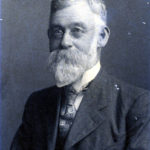
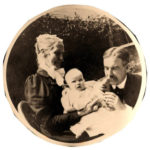
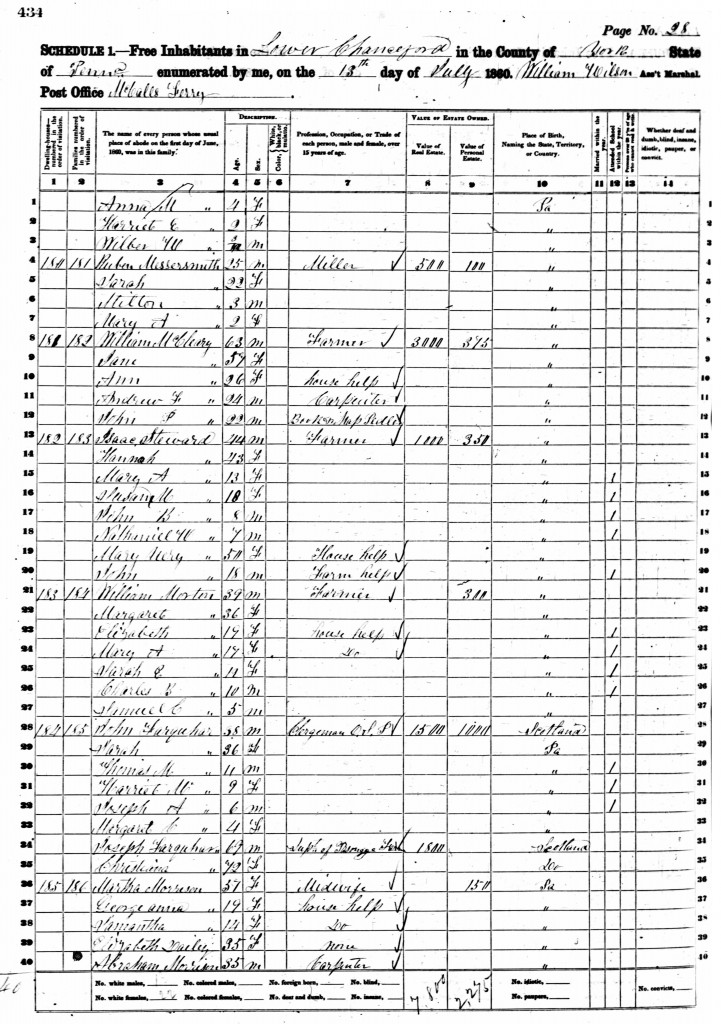
Hello, I found your website while researching the names on photos in an old family album. One of them was labeled “Rev. Farquar” and although misspelled, I believe it to be your Rev, John Farquhar. My relatives lived in the Chanceford Township where your ancestor was pastor. The photo has a stamp on the reverse showing that it was taken at the Temple of Art by CE Wallin in York, Pa. If you are interested in seeing this photo please email me privately as I will not be back to this site. I can send you a scan of it and if you agree that it is your ancestor, I will them mail it to you. No charge of course – I simply like to see these things go to the family.